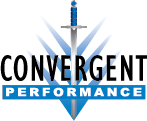This is the second in a series of posts that will provide, throughout the whole year, an improvement strategy that will cover the entire family of 9 Automation Airmanship® principles. This post lays out some strategies that crews can use on their very next flight to achieve expert results.
“…Experts really do ‘see’ problems differently… [and] because they’re looking in the right place at the right thing , constructing a solution is immensely easier.”*
– Denise D. Cummins
So, you’ve made the move to engage in continuous improvement for all of 2017, and are wondering what few things you can do today to make that plan reality. We suggest you start with the first Principle of Automation Airmanship—Planning—to improve the outcomes of every flight leg you operate.
Planning is an important step in overall problem-solving; a key multiplier in making complex situations easier to manage. So much of what is done in practicing the other 8 Principles involves Planning that it’s no wonder we put it in front of all the others. But just making time for planning isn’t enough; to do it like an expert, it must be done in a repeatable, reliable way every time. In Planning, the best experts always evaluate these four factors through the lens of automation:
- Individual Crewmembers’ competence, proficiency and readiness to operate advanced systems in complex operational and airspace environments;
- Aircraft equipment status (what’s not working, what must work for the flight’s successful outcome) as it applies to the route of flight—from preflight to shut-down;
- Airspace constraints versus automated systems required for compliance, especially when planning an international flight leg;
- Any known or anticipated non-normal conditions (like the presence of augmented crewmembers, significant weather threats or new or unfamiliar destinations or alternates, etc.).
Unless you fly with the same crew on every leg, you are likely to experience different levels of expert planning. Having seen & evaluated many hundreds of crews in different types of flight operations go through this stage of an overall flight or mission, we can say with certainty that crewmembers that are evaluated as “expert” in the planning phase are clearly doing things differently, and often, more efficiently. They are not just “checking the weather and NOTAMS, certificates and maintenance logbook” but are evaluating and applying the above approach to make sure that they are employing their own and others’ knowledge, the aircraft’s capabilities, and organizational guidelines with precision. They are, as Dr. Cummins suggests, “seeing problems differently” than their less-expert colleagues.
The four factors we’ve identified probably seem pretty obvious to most pilots and aircrew; but if everyone did these four things every time, better plans would be going into action across aviation. Challenge yourself to put them into practice every flight leg—write them down—and you may experience what the best experts among us do much more consistently than you may have heretofore. For instance, you may find out that a fellow crewmember just completed training in a newly installed system that has been added to the flight deck; or that a recently developed SOP is now in use or even that one of the airports you’re operating in or out of has NextGen procedures that just went into effect. Once more, from Dr. Cummins:
“Becoming an expert means increasing your knowledge in a particular domain (expertise is domain-specific) and organizing your knowledge efficiently so that solutions can be retrieved or constructed quickly. The importance of the latter cannot be overestimated.”*
Better planning means less re-planning.
Think about it.
Until our next post, fly safe, and always, fly first.
*Denise D. Cummins: Good Thinking: Seven Powerful Ideas that Influence the Way We Think. Cambridge University Press, Cambide, UK, 2012.
